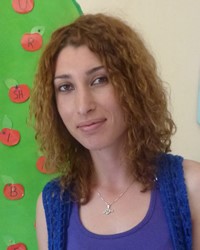Egyptian, Balkan in Montenegro

Photo Source:
The Advocacy Project - Flickr
Creative Commons
|
Send Joshua Project a map of this people group.
|
| People Name: | Egyptian, Balkan |
| Country: | Montenegro |
| 10/40 Window: | No |
| Population: | 2,000 |
| World Population: | 19,300 |
| Primary Language: | Albanian, Tosk |
| Primary Religion: | Islam |
| Christian Adherents: | 3.00 % |
| Evangelicals: | 0.00 % |
| Scripture: | Complete Bible |
| Ministry Resources: | Yes |
| Jesus Film: | Yes |
| Audio Recordings: | Yes |
| People Cluster: | Albanian |
| Affinity Bloc: | Eurasian Peoples |
| Progress Level: |
|
Introduction / History
The Egyptians of the 12th century BC found iron deposits in the Balkan region. That began the contact between two peoples that have since blended and changed considerably through the centuries. Other Egyptians moved to the Balkans during the time of the Ottoman Empire where they were administrators and merchants.
The Balkan Egyptians are closely associated with the Ashkali people. Some have associated them with the Roma Gypsies, though they would disagree. They are Sunni Muslims who speak Tosh Albanian. They speak the same language in the countries they live in. They also have the same culture and traditions. The Balkan Egyptians and Ashkalis have only recently become a recognized ethnic group in 1999. The Ashkalis want to distance themselves from the Roma. Thousands left the Balkans for Western Europe during the wars following the breakup of Yugoslavia. Many of these people have been deported by Germany, Switzerland and Italy and sent back to the Balkans. Upon returning to places like Montenegro, the Balkan Egyptians have been victims of economic and social discrimination that has been reserved for Roma Gypsies.
The complete Bible and JESUS Film are available in Tosh Albanian.
Though spread around the region, the Balkan Egyptians live mainly in the central and eastern regions of Kosovo. There are smaller populations in Albania, North Macedonia, Montenegro, and Serbia.
What Are Their Lives Like?
Balkan Egyptians need acceptance among the peoples around them so they can live productive lives free from prejudice. They also need to understand from the heart that God values them as His children, and He wants them to become part of His family.
The Balkan Egyptians, when they can find employment, work as farm and construction laborers. Some work as small shopkeepers and traders. Most do not own land. Other peoples frequently see them as Roma who are often thought to be petty thieves and criminals. Most live in poverty with few opportunities to improve their lot in life.
What Are Their Beliefs?
The Balkan Egyptians are Sunni Muslims. Sunni Muslims believe in the absolute power of the creator, Allah, who revealed his will to mankind through the Koran and through the Hadith, a commentary on the Koran. Muslims are expected to pray five times a day facing Mecca, the holy city of Islam, and fast from sunup to sun down during the month of Ramadan. Those with the means to do so must make a pilgrimage to Mecca. These pilgrims come home to people who give them greater respect for being "hajis." Giving alms to the poor is also part of Islam.
There are a tiny number of Balkan Egyptians believers.
What Are Their Needs?
These Muslim people need to find their way to Jesus Christ, the only one who can give them a right relationship with God the Father. The Balkan Egyptians need help in educating their children and in learning new job skills that can alleviate their poverty.
Prayer Points
Pray for gospel workers to catch a vision for reaching the Balkan Egyptians in Montenegro for Jesus and that in God's sovereign timing their hearts would be open and ready to follow him.
Pray for Jesus movements to bless extended Balkan Egyptian families so the gospel will spread rapidly among this people group.
Pray for the lives and culture of the Balkan Egyptians to evidence the rule and reign of the Kingdom of God as they open to the gospel, and for the beauty of Jesus to be seen in them.
Pray for Balkan Egyptians believers to grow spiritually and reach out to their families and neighbors.